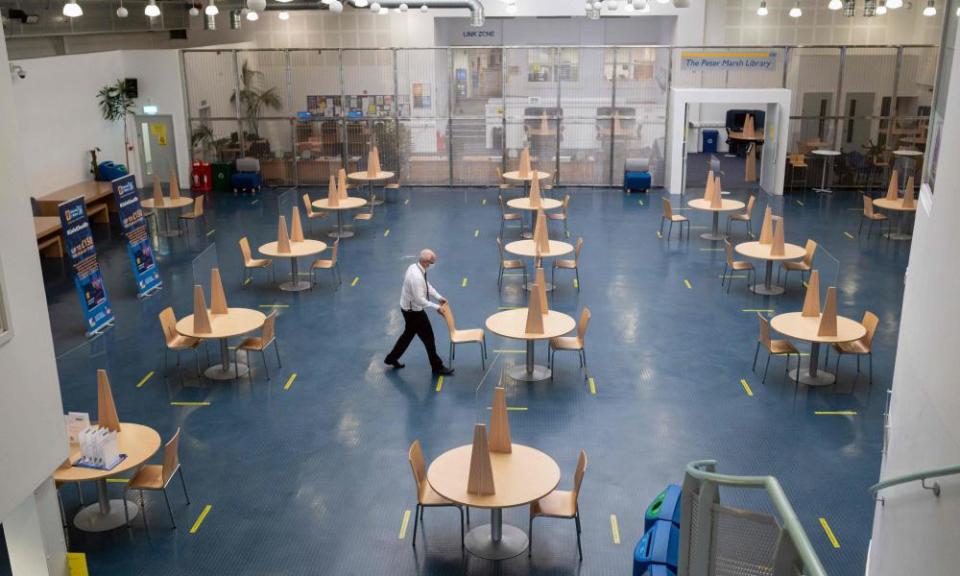Town v gown tensions rise over threat of Covid infection rate as new terms starts

Fears of a growing “town v gown” divide have been sparked by a new poll showing the majority of residents in university towns do not want students to return because their arrival could trigger fresh local lockdowns.
A survey, carried out by the University and College Union (UCU) and shared with the Observer, shows only a third of university town residents want face-to-face teaching to resume on campus. More than half (57%) think that students coming to their towns will result in lockdowns, and the same proportion think the government’s test and trace system is insufficiently robust to prevent a Covid-19 outbreak.
The UCU fears that the influx will “create animosity” between residents of university towns and the students. The union surveyed more than 1,000 people in 25 affected towns and cities across England and found 23% of residents would blame students if their return led to an increase in the spread of Covid-19.
UCU general secretary Jo Grady said there was a possibility this could lead to more hate crime, particularly towards international students: “It’s irresponsible for university leaders and the government to be encouraging students to move into communities and simultaneously not take steps to ensure that they don’t then become scapegoated for any predictable outbreaks.”

Residents of university towns are worried there will be lockdowns when term begins, cancelling out the benefits of the so-called student pound on the local economy.
Grady said: “The government has attempted over the past few weeks to cast the net of blame very widely and demonise young people and students. It’s a complete abdication of leadership and responsibility. Even the government’s own scientific advisers have said there will be outbreaks in universities in November and teaching will need to move online.”
She added: “How much evidence does the government need, before they have to concede they’re creating the very worst circumstances for the spread of the virus? Rather than planning to manage outbreaks, they should be planning to avoid them.”
The news comes as another poll, carried out by technology firm Citrix, reveals that 12% of UK students feel “too afraid” to attend classes at university and would prefer an “entirely remote” learning experience. Internet searches for “online degrees” have increased by more than 200% since last summer, Citrix says.
A third poll of university staff around the world, carried out by Times Higher Education last week, found the majority (58%) of UK academics do not feel safe returning to work on campus. Nearly nine out of 10 respondents said they were concerned that reopening campuses could lead to a spike in Covid-19 cases in their area and, by a two-to-one margin, identified financial concerns as the key factor in institutions’ plans to reopen – ahead of staff and student safety.
A Department for Education spokesperson said: “The safety of university students, staff and local residents is our top priority, and every effort is being made by the government and universities to ensure that students return to campus as safely and sensibly as possible.
“We have already seen universities put in place a range of protective measures, such as limiting travel into campus, staggering class times over extended days, and reinforcing hand hygiene. Our updated higher education guidance includes advice on what a provider should do in the event of a local lockdown, track and trace procedures, the creation of new households in student accommodation and reflects the latest social gathering restrictions.
“Opening universities is a part of the prime minister’s cautious roadmap, and it is important that we continue to open education settings wherever it is safe to do so. We support face-to-face teaching only where possible and if safety guidelines are followed, but know that high quality online teaching can also be delivered if necessary.”

